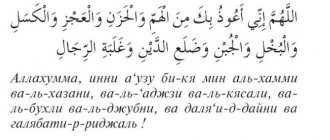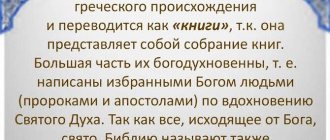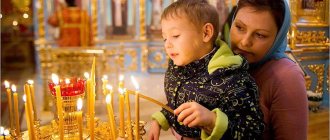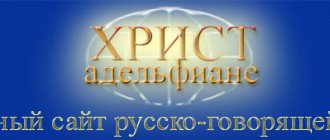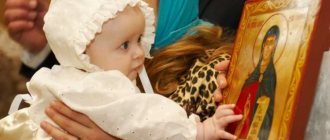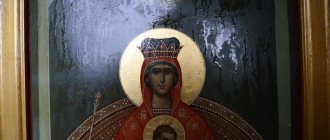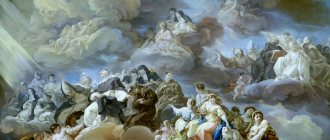Every person needs to enrich their spiritual life, and Christian books will help with this. The Word of God guides you on the right path and helps you overcome any adversity. There are many editions of the Bible in different languages. With the approval of the Russian Orthodox Church, the Synodal translation is considered suitable and understandable for home independent study.
The Gospel, Psalter and prayer book are the greatest books that every believer should have. But in addition to classic books, foreign and Russian authors offer a huge variety of Christian fiction for all ages. To help you understand such diversity, we have prepared a list of the most popular modern books, from which you can choose a collection of short stories or an Orthodox novel to your liking.
"Unholy Saints"
If you have not yet read this book, then in a certain sense you can even be congratulated. 640 pages of exciting reading await you. The collection of stories by Tikhon Shevkunov is, undoubtedly, not only a modern Orthodox bestseller, but also an all-Russian one.
The first edition appeared in 2011, and by the beginning of 2016 its total circulation had already reached over two million copies. During this time, the bestseller was translated into 13 foreign languages.
Read also:
Spiritual reading, or Why read the Bible and the works of the holy fathers?
What is this Orthodox book about, which in just a few years has gained such popularity not only among Russian readers? The stories of Bishop Tikhon Shevkunov are a book about the main thing. About God and man, about faith and repentance, about humanity and working on oneself, about monastic life without cuts and decorations, about the modern life of the Church and Soviet tests of faith.
Before Tikhon Shevkunov, virtually no other author depicted monastic everyday life so truthfully and in detail. Each story is read in one breath, written easily and accessible even to a person far from the Church. There is no moralizing and pharisaism, boring teachings and boring stories in it.
If Orthodox literature for the most part resembled “Unholy Saints,” then stereotypes about boring “priestly” writings would not exist.
The author, who once graduated from the screenwriting department of VGIK, writes as if he were making a movie. Before us are the strict abbot of the Pskov-Pechersk Monastery, Father Gabriel, and the smiling elder John Krestyankin, and the sternly humble schema-abbot Melchizedek, and many people who sought God in amazing ways - unholy saints. This is a reminder book. About what? That each of us is called to holiness.
Judging by the responses online, for many people this Orthodox book became the first step on the path to the Church.
The best books about Orthodoxy for children
- “Biblical wisdom in children's stories” by Elena Kosinova is a collection of works with moral overtones. After each story there are questions that parents can ask their children, which contributes to better assimilation and correct understanding of the story read.
- The Lamb by John Cross is a very easy to understand book about the purpose and origin of the Holy Scriptures. Each chapter has bright illustrations that make what they read even more accessible to the little ones.
- “The Girl Who Wouldn’t Go to School” by Brigitte Ekman is an educational story about a little girl in which every child can see themselves. Many do not want to learn, they are afraid of change and responsibility. Using a simple example from the author, children are shown different aspects of life and ways to overcome shyness.
"Flavian"
Another example of high-quality modern Orthodox literature is the Flavian theralogy. Archpriest Alexander Torik shows the fates of modern heroes who, one way or another, came to God. Many of them, before meeting God, broke things or fell to the very bottom. And when, it would seem, there is no hope left, they discover an amazing spiritual world and meet a wonderful priest - Father Flavian.
Before us is the family of Alexei and Irina with their five adopted children (and before that there were continuous misunderstandings, five abortions, divorce and Irina’s serious illness), the possessed girl Katya, the nun Seraphim, an avid atheist professor, who accepted God and took monastic vows at the time of his death, Athonite elders...
The Orthodox book is written in living language and simply and gradually introduces you to the basics of the faith. Instead of a long list of sins and a story about 20 ordeals - Alexei’s heartfelt first confession; Instead of strict descriptions of life on Athos, there are memorable stories with wonderful characters. And this is not all that awaits the reader on the pages of all four books. As experience shows, if you picked up the first part, you will definitely want to read all the rest.
Modern Orthodox literature
Exciting bestsellers of our time:
- “Eternity” by Randy Arkoln - in a novel written in the comic book genre, a detailed retelling of the parable from chapter 16 of the Gospel about the rich man and Lazarus is presented in an interpretation understandable to contemporary people.
- “The Miracle Worker” by Vladimir Imakaev is a mystical thriller about the struggle between good and evil that keeps the reader in suspense from the very first pages. Fantasy lovers will appreciate the multi-faceted plot and unexpected ending.
The website of the MSM-market online store presents a wide range of modern Christian books with a fascinating plot that will help every reader look at himself from the outside and, possibly, solve important moral dilemmas.
"Red Easter"
This is the story about the life of three Optina new martyrs - Hieromonk Vasily, monks Trofim and Ferapont. On Easter 1993 they were killed by a half-crazed Satanist. 666 was engraved on the knife. No, this is not at all a bright flash of imagination of an Orthodox writer. That's exactly how it was.
The Orthodox book was not written by some unknown Christian woman who lived near the Optina Hermitage. The author of the story, Nina Pavlova, is an experienced writer and playwright. It was her book “Red Easter” that received universal recognition among readers.
Nina Pavlova showed in many ways the life of three Soviet boys who at a certain time came from unbelief to God.
Hieromonk Vasily - in the world Igor Roslyakov - a journalist with a Moscow State University education and an international master of sports, at one time a member of the Soviet Union water polo team. They predicted an excellent career for him, but he left everything and went to a monastery.
Leonid Tatarnikov (monk Trofim) could not find a place for himself in the world. Not because he was lazy to work or only dreamed of a monastery. God gradually prepared him for monasticism, tempering him with sorrows and misunderstanding on the part of others. But the monk had his main weapon for everything - love, genuine joy and a sincere smile.
Vladimir Pushkarev (monk Ferapont) came to God after meeting a certain woman who experienced clinical death. On her recommendation, I read some Orthodox books: a volume of works by Ignatius Brianchaninov, the biography of Job of Pochaev and the teachings of Silouan of Athos. With this start, naive faith, humility and meekness, he came to Optina.
Everyone has their own amazing destiny and path towards God. And Nina Pavlova introduces us to this.
"Father Arseny"
This Orthodox book does not have one author, and it is not known for sure whether there is one real, and not a fictional or composite hero - the mysterious Father Arseny. But these facts do not affect the holistic perception of the collection of stories.
Father Arseny is a Soviet priest who went through the darkness of the camps, but did not lose the main Christian virtues - faith and love. His main message is his own example. Even the most bitter prisoners see him as a special person. In a non-human system, he does not lose his human appearance.
Father Arseniy shares the last cracker, takes care of a hopelessly ill person, does not bend under the system, and protects a young student from the “prisoners.” In a cold punishment cell at -40, he is warmed by faith and prayer.
This Orthodox book is suitable for those who, in the bustle of the world, have lost spiritual guidance, lost faith in people and become bitter. Read and think.
"My Posthumous Adventures"
Every person has probably thought about what awaits him beyond the grave? Orthodox writer Yulia Voznesenskaya in her story showed what life after death could look like.
What awaits the deceased? How will he go through the ordeal? Why do you have to answer for every sin? How can relatives help the deceased? Is there hope for the Kingdom of Heaven?
It is these questions that are answered in Yulia Voznesenskaya’s book, which is so unlike typical examples of Orthodox literature on this topic. The story is written in an easy and accessible way, so it is suitable even for a person far from religion. Despite the artistic style and accessibility, it is based on the teachings of the Church or individual holy fathers and contains almost no mistakes.
Yulia Voznesenskaya’s book is not at all similar to moralizing teachings in the style of “Repent, otherwise you will burn in hell!” But at the same time, the reader draws certain conclusions for himself: he wants to change, devotes more time to prayer for the departed, learns to appreciate every moment, otherwise tomorrow it may no longer exist.
We also invite you to watch the performance-concert “Unholy Saints” based on the book by Archimandrite Tikhon (Shevkunov):
Popular books of the Orthodox genre in fb2, epub
From the author of the book daily sermon Fr. Vyacheslav Reznikov
The bride, before getting married, tries to find out everything about her groom. Likewise, it is quite natural for a Christian to desire to know everything about the Heavenly Bridegroom, with whom he was united in Holy Baptism. And for this you need to read the Holy Scriptures, and especially the New Testament. The books of the New Testament include the four Gospels, the book of the Acts of the Apostles, twenty-one Apostolic Epistles and the Revelation of John the Theologian.
The Gospels are the testimony of Christ's disciples, who themselves, with their own eyes, saw the wondrous deeds of Christ, saw His death, His resurrection from the dead. His Ascension to Heaven. All of them, by their martyrdom, testified to the truth of their words.
The Book of the Acts of the Apostles speaks of the first steps of the Church of Christ on earth. The apostolic letters addressed to different church communities explain in more detail what the Lord Jesus Christ has done for us, how to please Him, what He loves and what He hates, what He expects from us, and what we can expect from Him both in this life and in the future.
And “Revelation” is a mysterious book about the future destinies of the world and the Church. All these books have authors, but they are all written by the Holy Spirit, and without reading these books it is impossible to be a Christian.
We don’t just buy the books of the New Testament in a store or take them off the shelf, like all other books. We receive them from the hands of the Church, and we receive them together with the church experience of reading these books, along with examples of how people lived according to these books, together with the science of how to prayerfully remember the events described in these books. None of this should be neglected when reading the Holy Scriptures, because all these branches come from one root.
Over the two thousand years of Christianity, many teachings on the topic of the Holy Scriptures have been said, written and reached us. They are all about the same thing, and at the same time they are all very different, because they were pronounced by different people, for different peoples, at different times. Christianity experienced periods of outward growth and prosperity, and then schisms and persecution. And each time the preacher was faced with his own tasks: to expose lies, to support the persecuted, or simply to stir up those who had fallen asleep.
But the main goal of a preacher who has revealed Scripture is to discover something for himself, so that one of the many pressing questions living in the soul would catch on to something in the Holy text, and so that this Holy text would speak specifically for you. And then - share this discovery with listeners.
The Word of God should be read every day. This is as necessary as praying to God. As in communication with a person: you speak and listen, so it is with God: prayer is what we say to Him, and Holy Scripture is what He tells us. Some read the Scriptures in a row, by chapters, and others - according to the church calendar.
From ancient times, the division of the “Gospel” and the “Apostle” into so-called “conceptions” for reading during church services has come down to us. Every day you are supposed to read one concept from the “Gospel” and one from the “Apostle”. A full circle is completed in a year.
It begins on the day of Holy Easter. If we open the church calendar, we will see that for this day it is written: “Acts 1:1-8. John 1:1-17.” This means that on Easter one reads from the first chapter of the Gospel of John from the first to the seventeenth verse, and from the first chapter of the book of the Acts of the Holy Apostles from the first to the eighth verse. And so on. But not always strictly in a row. And Saturdays and “weeks” generally have their own order. And this is deeply no coincidence. It is impossible not to notice that there is almost always a living connection between the Gospel and Apostolic readings of the day: they complement and reveal each other.
“Week,” by the way, in church usage is what we call “Sunday” in everyday life. And what we are accustomed to calling “week” is called “week” in church usage. It is interesting that from Easter to Pentecost (or Trinity) the “week” begins with a “week”, for example, after Easter comes the first, Paschal week. But after the “week of Pentecost” all weeks begin on Monday and end with the corresponding “week”.
For example, after “week 10” on the next day we will read: “Monday, 11”, after which the next “week” will have the number “11”. In total, the church circle includes: seven weeks from Easter to Pentecost; thirty-six weeks until Lent; Saturdays and “weeks” of Great Lent (there are no New Testament readings on the weekdays of Great Lent); and - readings for Holy Week, starting with Holy Monday.
The circle ends on Holy Saturday. Since Easter falls on different days of the year each time, in order to meet the readings before the next Easter, there is a system of so-called “digressions”, when some readings are either postponed or repeated.
This book represents a full range of sermons for all days of the church liturgical year, from Easter to Holy Saturday. Total - 347: 365 minus - weeks of Lent, plus - great holidays. In other sermons both the Gospel and the Apostle are covered; in others - only the Gospel; and in others - only the Apostle, and the Gospel is postponed until the next day, when a similar, or, as they say, “parallel” passage from another Evangelist will be read.
If there is no indication of the source of a particular quote, it means that it is within the texts indicated at the beginning of the sermon.
This book is offered to help the regular reader of the New Testament, with prayerful gratitude to the preachers of all times who have helped and continue to help me.
prot. Vyacheslav Reznikov
